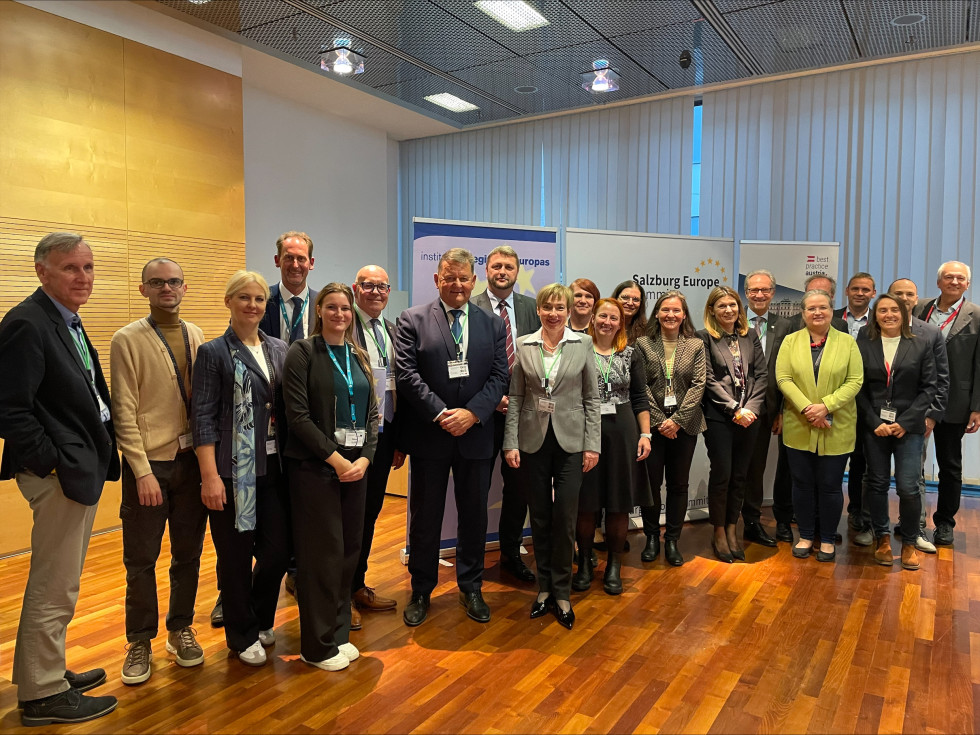20th Salzburg Europe Summit

Minister Jevšek with the participants of the panel discussion titled Improve Efficiency of the European Structural and Investment Funds (ESI Funds) Absorption Processes in Slovenia | Author Ministry of Cohesion and Regional Development
EU Member States primarily use the ITI mechanism to promote integrated and sustainable urban development in cities and urban areas. In terms of ITI implementation, Slovenia has been recognized as an example of good practice at the Union level. “However, there is always room for improvement, and this is what we aim to achieve with the project Improve Efficiency of the ESI Funds Absorption Processes in Slovenia. The good practices in ITIs demonstrate how important Cohesion Policy is for cities, regions, Member States, and the entire Union. In a turbulent world marked by wars, inequalities, climate change, and digital and demographic challenges, we need to uphold the principles of Cohesion Policy, its modes of implementation, and ensure sufficient funding more than ever,” stressed Minister Jevšek in his opening remarks.
The Minister also congratulated the Association of Urban Municipalities of Slovenia for their work and ongoing improvement in implementing ITIs regarding processes, knowledge, skills, and cooperation with partners and stakeholders. In the previous period, Slovenia co-financed more than 90 projects totalling 117 million euros in Cohesion Policy funds.
Minister Jevšek also spoke about the post-2027 Cohesion Policy by underlining that it must remain a strong, resilient, and primary main long-term investment policy that must support all regions, with a special focus on less developed regions.
“It must be implemented under shared management, based on multi-level governance, the partnership principle, and subsidiarity. It should focus on creating conditions that improve the quality of life for all EU citizens and ensure more resilient economies. Good governance, a sound implementation system, and effective and well-coordinated involvement of partners at all levels are ‘a must’ for efficient future implementation. It should be simplified and made more flexible. We have learned that a ‘one size fits all’ approach does not work in Cohesion Policy,” also underlined Minister Jevšek.
On the sidelines of the Summit, Minister Jevšek held bilateral meetings with the Hungarian Minister for Foreign Affairs and Trade, Péter Szijjártó, the Montenegrin Minister for European Affairs, Maida Gorčević, and the Croatian Minister for Regional Development and EU Funds, Šimet Erlić. Minister Szijjártó and Minister Jevšek discussed the Programme promoting the economic base of autochthonous national communities and the Muraba cross-border project. Minister Gorčević and Minister Jevšek discussed good relations and cooperation between the two countries and the EU enlargement process. Minister Erlić and Minister Jevšek discussed the Interreg Slovenia Croatia cross-border programme.
As part of the three-day event, the Institute of the Regions of Europe (IRE) aims to strengthen European subsidiarity, promote cross-border cooperation and connect European regions. Over the years, the Institute has become well-known throughout Europe.

